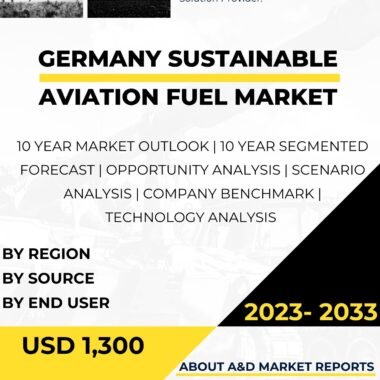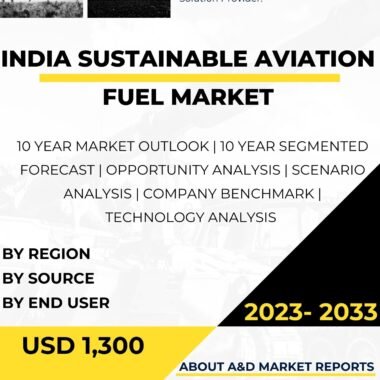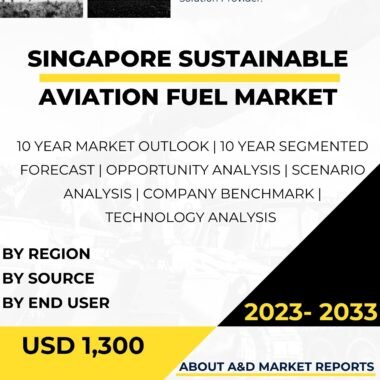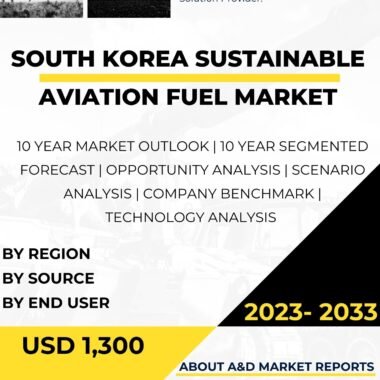Description
Sweden Sustainable Aviation Fuel (SAF) Market Overview
The Sweden Sustainable Aviation Fuel (SAF) Market is a key segment of the country’s aviation and energy industries, focusing on the production and adoption of environmentally friendly aviation fuels. SAF, or biojet fuel, is derived from renewable feedstocks and offers a viable solution to reduce the aviation sector’s carbon footprint. With aviation contributing significantly to global greenhouse gas emissions, Sweden’s commitment to sustainability and technological innovation positions it as a leading player in the global SAF market.
Key Applications
Commercial Aviation: Airlines in Sweden are increasingly integrating SAF into their operations to reduce carbon emissions and meet sustainability targets. As a drop-in replacement for conventional jet fuel, SAF can be used in existing aircraft without modifications, making it a practical solution for immediate emission reductions.
Military Aviation: The Swedish Armed Forces are also exploring SAF adoption to reduce the environmental impact of military operations and contribute to national sustainability goals.
Technological Advancements
Sweden’s SAF market benefits from advanced production technologies and innovative processes. Production facilities utilize diverse feedstocks, including agricultural residues, forestry waste, and non-food crops, to generate renewable jet fuels. Research and development efforts are ongoing to enhance production efficiency, explore new feedstocks, and optimize refining processes, ensuring the sustainability and reliability of SAF supply.
Export and Global Presence
Swedish SAF has gained international recognition for high quality and compliance with rigorous sustainability standards. Exports adhere to certifications such as the Roundtable on Sustainable Biomaterials (RSB) and the International Sustainability and Carbon Certification (ISCC), reinforcing Sweden’s reputation as a responsible global supplier of renewable aviation fuels.
Research and Industry Expertise
Collaboration between the aviation sector, research institutions, and government agencies drives innovation in SAF technologies. Sweden’s expertise in bioenergy, renewable feedstock cultivation, and green technology enables the development of state-of-the-art SAF production facilities, addressing challenges of scaling production and ensuring a sustainable supply chain.
Challenges
Key challenges include the scalability and cost-effectiveness of SAF production, as large-scale production at competitive prices remains difficult. Additionally, higher costs compared to conventional jet fuel can slow adoption by airlines, highlighting the need for supportive policies, incentives, and investments to accelerate SAF integration.
Future Outlook
The Sweden SAF Market is poised for growth, supported by R&D, international collaboration, and rising demand for sustainable aviation solutions. Sweden’s focus on innovation and environmental stewardship ensures it will remain a global leader in SAF production. By providing eco-friendly aviation fuels while supporting aviation sector growth, the market contributes to Sweden’s journey toward carbon neutrality and a greener aviation industry.




